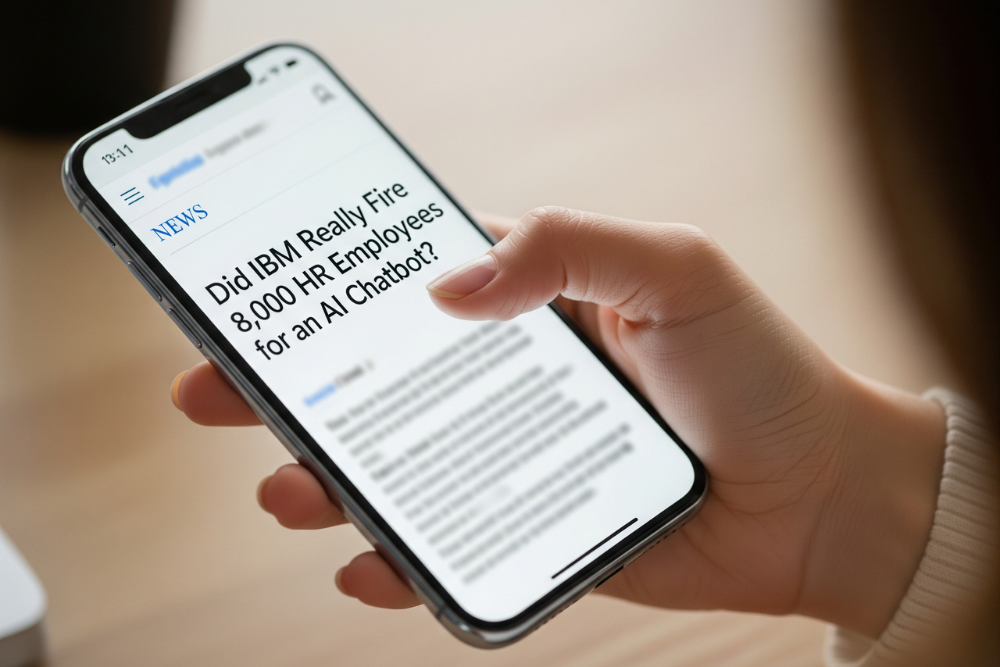80% of organizations already outsource at least one HR function – be it payroll, benefits administration, or compliance. That’s not just a stat, it’s your competitors making strategic moves while you’re buried under a pile of onboarding paperwork.
Businesses that outsource HR functions grow 7–9% faster, experience 10–14% less turnover, and are 50% less likely to go out of business. No, that’s not a fluke, it’s the power of focusing your energy where it counts.
And if cost is on your mind? HR outsourcing can reduce employment costs by up to 70%, especially when using a global provider. Plus, companies report an average ROI of 191% on outsourced HR services. That’s nearly double your money back in time, savings, and sanity.
So, what does that mean for you? If you’re a startup founder, small business owner, or scaling entrepreneur, it means outsourcing HR is no longer a luxury. It’s a best practice that lets you focus on strategy while someone else handles the admin chaos.
Let’s break down how it works and what makes it so powerful.
What Does It Mean to Outsource Human Resources?
To outsource human resources means shifting all or part of your HR responsibilities to an external provider, also known as HR outsourcing services.
That could be a third-party HR consultant, a cloud-based HR software firm, or a full-service outsourcing firm that acts like an extended arm of your team.
The scope can range from:
- Just payroll processing
- To full benefits administration
- To full-service HR compliance, employee relations, and performance management
It’s flexible, scalable, and tailored to your business needs. You’re not losing control, you’re delegating HR responsibilities to specialists so your in-house HR (or you, if you are HR) can breathe again.
Commonly Outsourced HR Services
You don’t have time to do it all, nor should you. These are the most commonly outsourced HR functions that small businesses and startups hand off first:
1. Payroll & Payroll Processing
No one likes making payroll mistakes. It’s risky, time-consuming, and emotionally exhausting. Outsourcing payroll ensures timely payments, accurate tax filings, and compliance, all without last-minute stress.
2. Benefits Administration
Choosing plans, managing enrollment, answering employee questions, benefits administration can be a full-time gig. A provider handles it all, usually with access to better employee benefit options.
3. HR Compliance
Laws change faster than TikTok trends. Keeping up with regulations, audits, and documentation is critical and exhausting. HR outsourcing makes it someone else’s job.
4. Onboarding & Offboarding
A streamlined, positive experience for both new hires and departing employees reflects well on your brand. Providers can help manage this seamlessly.
5. Employee Handbook, Policies & HR Support
Got an updated harassment policy? What about remote work guidelines? A strong HR outsourcing partner ensures you’re covered with compliant, up-to-date documentation.

Effective Global HR Solutions: Wage Hosting vs. Employer of Record Explained
Looking to manage a global team? Find out the key differences between wage hosting and Employer of Record (EOR) services and which one is right for your business.
10 Key Benefits of Outsourcing HR
Let’s zoom in on the real value of HR outsourcing. Because it’s not just about removing work, it’s about unlocking opportunity.
1. Lower Costs & Higher ROI
Forget salaries, benefits, software, and training for full-time HR staff. With outsourcing, you pay only for the services you need. Many businesses report huge cost savings, especially when outsourcing to specialized providers.
2. Access to HR Experts on Demand
Instead of hiring a junior HR rep with limited experience, you tap into HR professionals who’ve seen it all. That’s Fortune 500-level advice for startup prices.
3. Scalable Support That Grows With You
Need more support during a hiring surge? No problem. Downsizing? Scale back. Outsourcing gives you scalable HR services based on your current phase—not your 5-year forecast.
4. Improved Employee Experience
Fast response to questions, smooth benefits management, and clear policies? That’s the kind of HR support employees actually like. And that builds company culture.
5. Enhanced Compliance & Reduced Legal Risk
When compliance is handled by pros, your risk of fines, audits, or lawsuits drops dramatically. It’s peace of mind you can’t put a price on.
6. Streamlined Payroll Processing
Your team gets paid on time, every time. Taxes are filed. Records are accurate. You’re not losing sleep at midnight wondering if payroll ran.
7. Simpler Tech Stack
Many providers include or integrate cloud-based HR systems, from time tracking to performance reviews, saving you hours on admin and IT management.
8. Better Benefits Without the Headache
Thanks to volume and vendor relationships, many outsourcing firms offer employee benefits packages that small businesses couldn’t access alone at competitive rates.
9. Strategic Focus for Leaders
Less admin means more time for strategic planning, culture-building, and product development—aka the stuff you actually enjoy.
10. Reduced Turnover & Better Culture
Companies that outsource HR see higher employee satisfaction and lower turnover, especially when HR is responsive, fair, and efficient.

Is Outsourcing Worth It? Pros and Cons Explained
Outsource smarter with a clear view of the pros and cons of outsourcing. Learn the benefits of outsourcing, key disadvantages, and how small businesses can cut labor costs and streamline growth.
The Real Cost of HR Outsourcing
Let’s talk money. Here’s what you need to know about HR outsourcing costs:
What Impacts the Cost?
- Number of employees
- Services selected (just payroll vs full HR)
- Technology platforms included
- Industry complexity (compliance-heavy fields may cost more)
Pricing Models
- Per-employee-per-month (PEPM): Great for predictable scaling
- Flat-rate packages: Often used by startups or small teams
- Custom quotes: For large or complex businesses
Average Cost Estimates
- Basic services (payroll, benefits admin): $50–$150 per employee/month
- Full-service HR outsourcing: $150–$500 per employee/month
- One-time setup fees: $500–$2,500 (depending on size & tech needs)
But don’t just look at cost, look at value. What are your hidden costs right now?
- HR software subscriptions
- Time lost to admin
- Potential compliance fines
- Employee turnover
- Burnout (yours and theirs)
When you factor those in, outsourcing HR is often the more affordable route.
When to Consider Outsourcing HR
Wondering if now’s the time? Here are some red flags:
- You or your in-house HR department is overwhelmed
- Payroll mistakes or late tax filings are happening
- You’re scaling fast with no clear HR structure
- You want to offer better benefits but don’t know where to start
- You’re in a compliance-heavy industry
- You have no internal HR and want to avoid building from scratch
- You want strategic support without adding headcount
Considering outsourcing HR doesn’t mean you’ve failed. It means you’re growing and smart enough to know what not to do alone.
How to Choose the Best HR Outsourcing Services
Here’s how to find the right partner because not all providers are created equal.
1. Define Your Business Needs
Are you just looking for payroll processing, or do you need help with onboarding, performance management, and compliance too?
2. Evaluate Industry Experience
Pick a provider with experience in your size and sector. A firm that serves 200+ person enterprises may not be a fit for your 12-person remote team.
3. Review Tech Integration
Will their tools plug into your existing systems? Are they user-friendly? Do they support mobile access?
4. Ask the Right Questions
- What’s included in your service tiers?
- How do you handle onboarding?
- How do you support employee questions?
- What’s the response time?
5. Prioritize Culture Fit
You’re trusting them with human resource work – your people. Choose a provider whose tone, values, and communication style match your own.
6. Look for Flexibility
Make sure they offer scalable HR solutions that grow with you, so you’re not jumping providers every year.
Should You Outsource Your HR?
If you’ve made it this far, you already know the answer.
HR outsourcing allows businesses, especially small and growing ones to operate smarter, leaner, and more confidently. Whether you start with payroll or go all-in with full-service support, the benefits of outsourcing HR are clear:
- Less stress
- Better service for employees
- Clearer compliance
- Lower costs
- More time for you to lead
You don’t have to do it all. You just have to do what matters most and let the right partner handle the rest.
If you’re ready to take HR off your plate and focus on what truly moves your business forward, contact iScale Solutions. We help businesses like yours streamline HR with tailored, cost-effective outsourcing services that scale as you grow.
Frequently Asked Questions
1. Can HR outsourcing support international or remote teams?
Absolutely. One of the key benefits of outsourcing human resources is the ability to scale across borders without the usual operational headaches. Many HR outsourcing providers offer solutions specifically designed to support global teams, remote workers, or distributed offices.
With the rise of remote-first businesses, handling HR operations like compliance with local labor laws, employee benefits administration, and payroll across multiple regions—has become increasingly complex. A skilled HR outsourcing provider can ensure local legal compliance, manage benefits based on geography, and simplify international payroll processing.
If your company is growing globally, outsourcing HR is often a best practice to reduce the risks of misclassification, currency conversion issues, and conflicting regulations.
2. What’s the difference between HR outsourcing and a PEO?
Great question! While both options help you manage HR, there are some key differences:
A Professional Employer Organization (PEO) becomes a co-employer, meaning they legally share responsibilities and liabilities with your company. Your employees are technically employed by the PEO for tax and benefits purposes.
HR outsourcing, on the other hand, allows you to outsource HR functions without giving up any legal control over your team. You retain full employer status while the HR provider handles the admin side of things.
So if you’re looking for flexibility and want to outsource human resources without changing your company structure, HR outsourcing is likely the better fit. It’s also easier to scale and exit than a PEO.
3. How does HR outsourcing affect data security and confidentiality?
Data privacy is critical in today’s digital business environment—especially when it comes to human resource records like salary, benefits, and employee files.
Reputable HR outsourcing companies use secure, cloud-based platforms with encrypted systems to ensure your sensitive information is protected. These systems are often more secure than what a small internal HR team could maintain.
Still, when considering HR outsourcing, it’s important to ask:
- What data protection protocols do they use?
- Are they GDPR or HIPAA compliant (depending on your region)?
- Who has access to employee data?
Partnering with a trusted HR outsourcing provider not only removes the burden of HR administration, but also helps you align with modern data protection standards.
4. Can we keep some HR tasks in-house and outsource the rest?
Absolutely, and this is actually one of the most common approaches to HR outsourcing.
Many companies choose to keep strategic HR functions (like internal culture initiatives or high-level performance coaching) in-house, while outsourcing administrative HR tasks like:
- Payroll
- Time tracking
Benefits administration - Compliance updates
- Document management
This hybrid model allows businesses to customize their HR services depending on what’s most efficient, where their HR team needs support, and what aligns with their business growth strategy.
It’s not all-or-nothing. Outsourcing HR services can (and should) be tailored to your unique HR needs.
5. Will outsourcing HR help improve employee satisfaction and retention?
Yes, and it’s one of the significant benefits that often gets overlooked.
When you outsource HR, employees typically get faster, clearer communication about their benefits, policies, and questions. That leads to a smoother employee experience—from onboarding to offboarding.
Plus, working with an experienced HR outsourcing firm means employees may gain access to better products and services, like wellness plans, EAPs, or Fortune 500-level benefits, even at a small business.
And when employees feel supported, they stay longer. They’re more engaged. And that’s good news for your culture, productivity, and bottom line.
